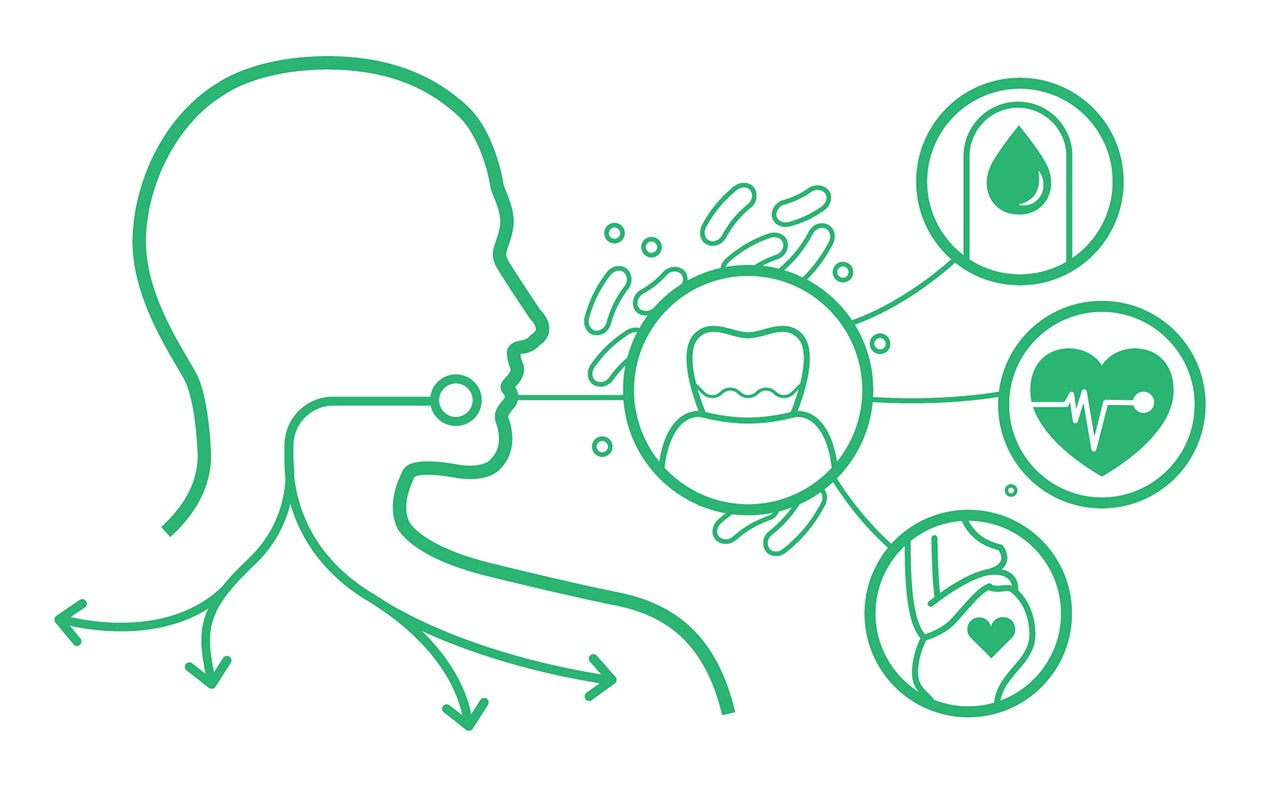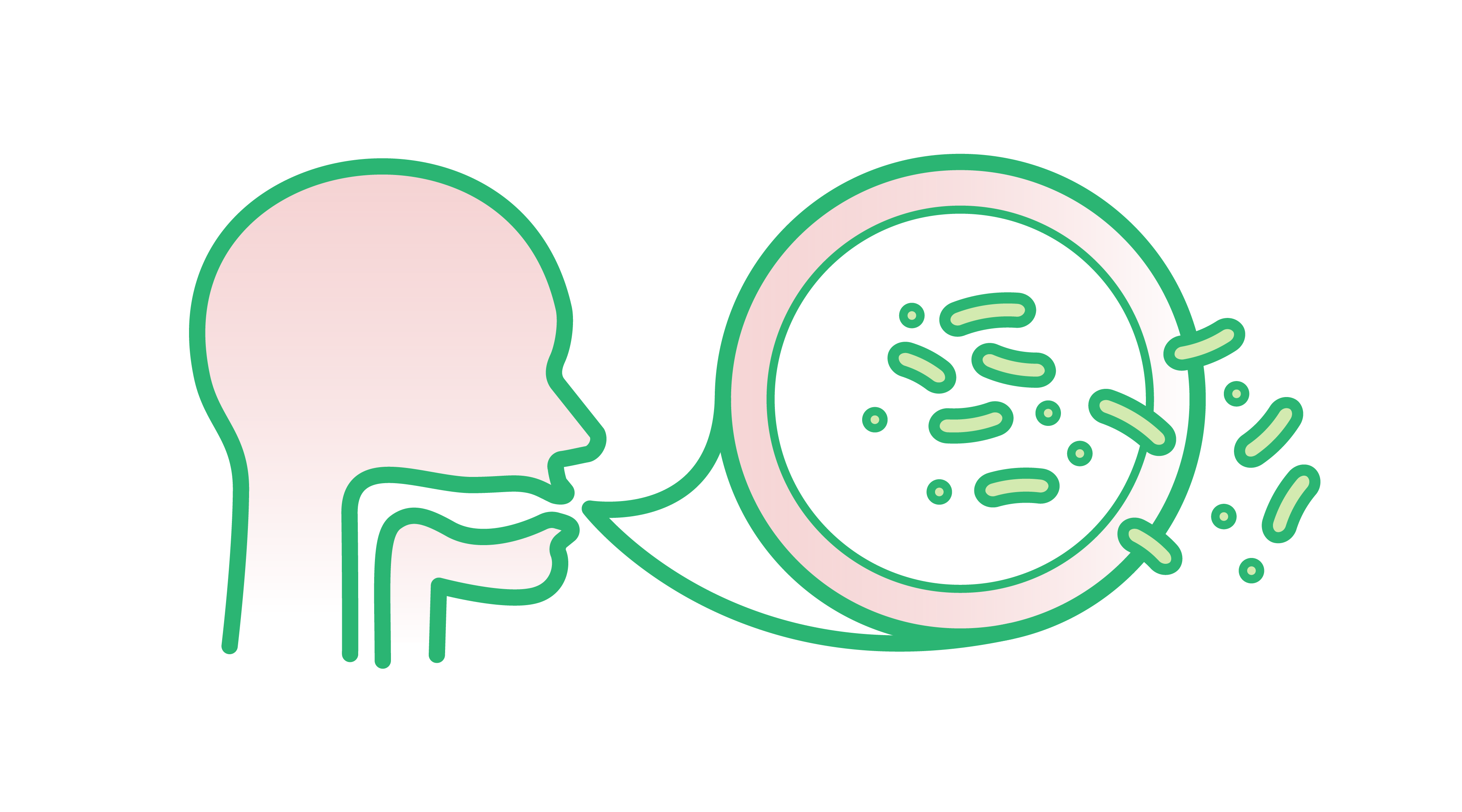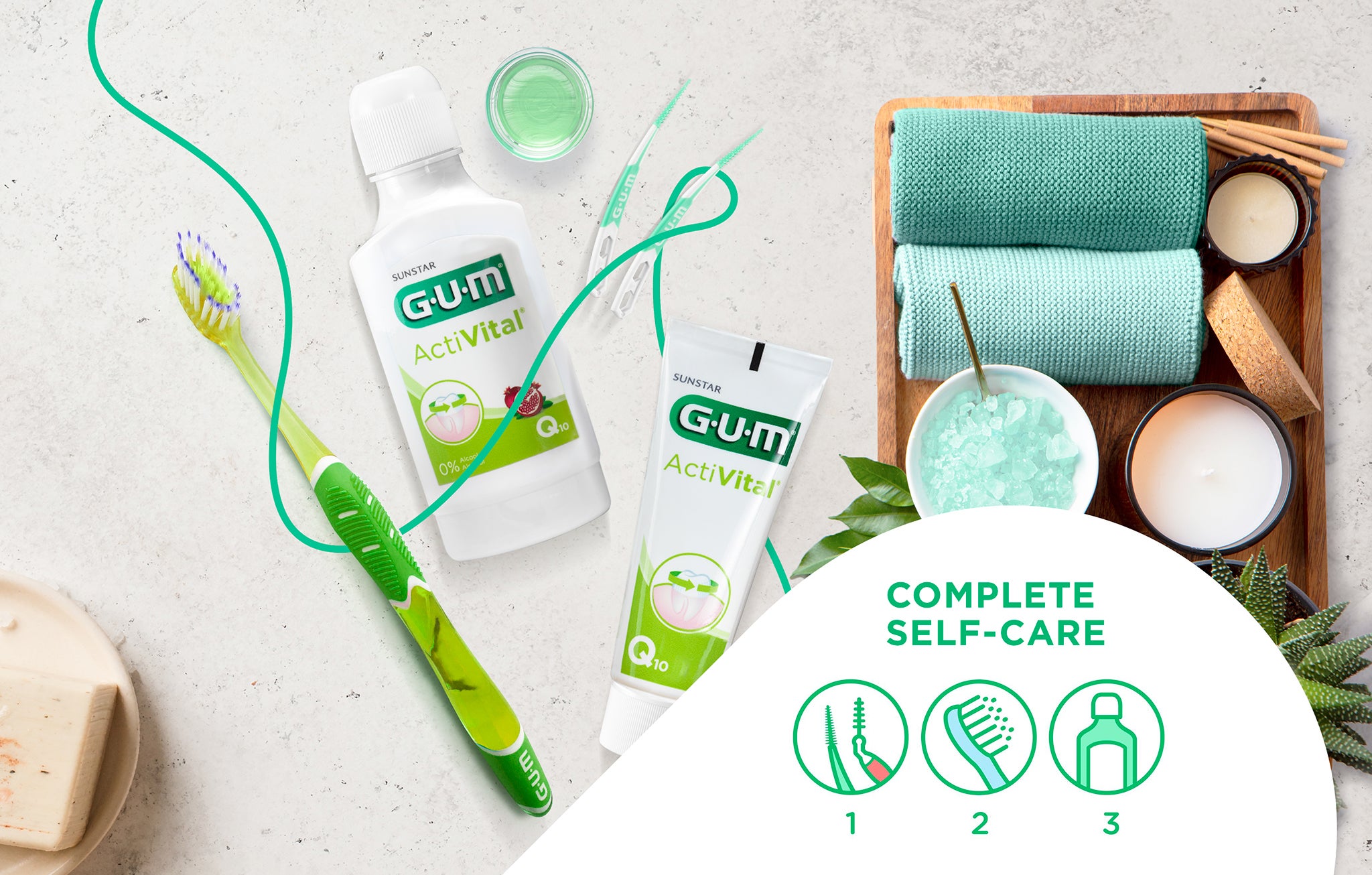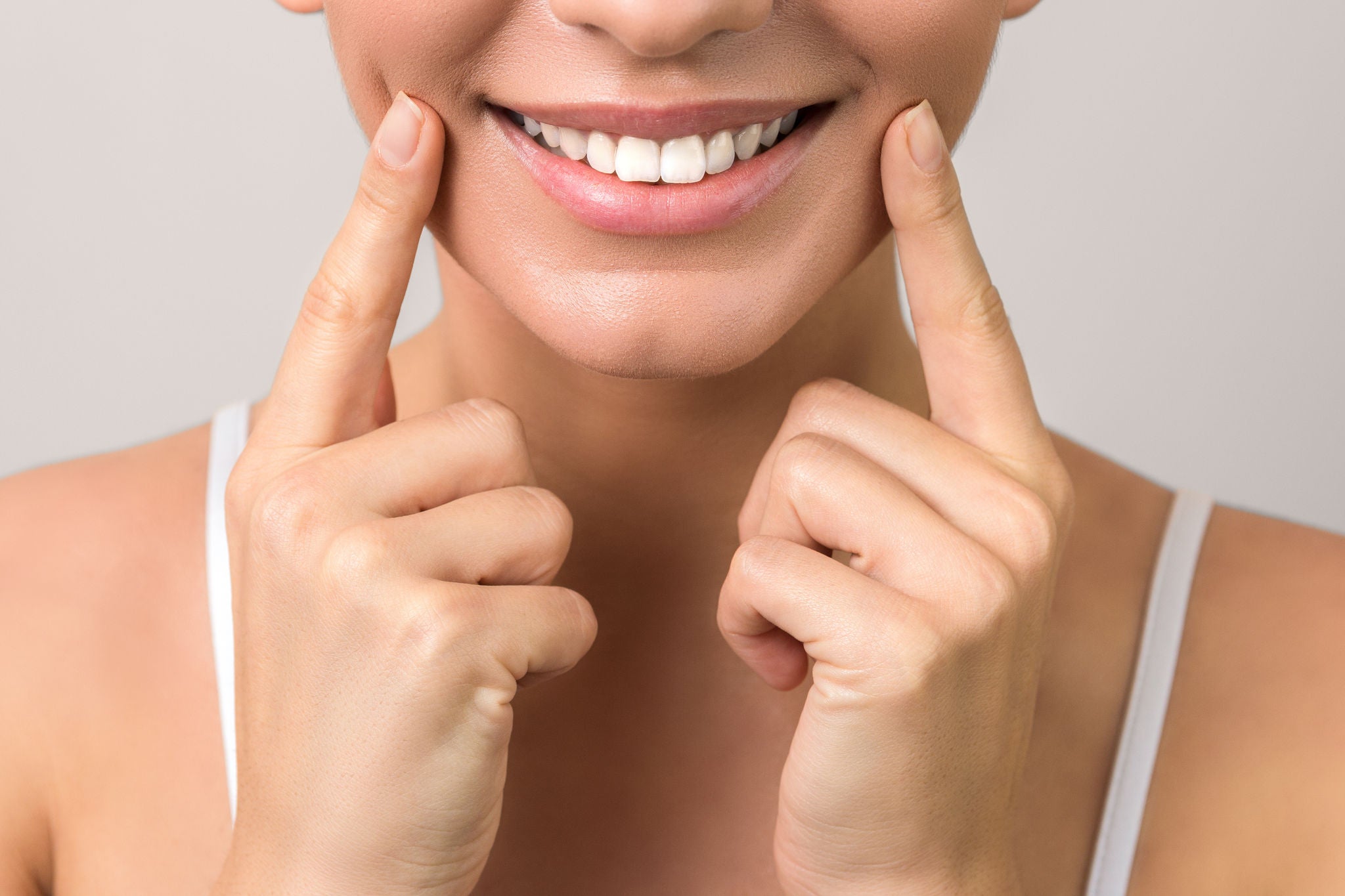
A Guide to Holistic Dental Care: Oral Health for Whole-Body Wellness
“The health of your mouth is derived from the health of your whole body”
Hiroo Kaneda, CEO of SUNSTAR Group

We understand that the human body is a whole, composed of many interconnected systems. We know that what impacts one area of the body can have cascading effects on other areas of the body. This is why we are committed to providing tools and education that support and promote the practice of complete oral care rituals.
We’ve created this page as a hub of information about holistic dental care, highlighting the ongoing discoveries scientists are making about the link between oral health and whole-body health.
Definition and benefits of holistic dental care
To understand holistic dental care, we must first define the word holistic. According to Oxford, it is the belief that
“the parts of something are interconnected and can be explained only by reference to the whole.”
Holistic dental care, therefore, is the practice of caring for the whole body by way of maintaining good oral health. The practice of holistic dental care recognizes the interactions between the mouth and the whole organism and honors the bi-directional relationship between the two.
It is worth noting that the term holistic has, in some colloquial uses, been misapplied to denote alternative medical practices. That is not an accurate use of the word and not the position of SUNSTAR GUM. Our holistic approach to dentistry is grounded in thorough, peer-reviewed research.
Understanding the link between oral health and whole-body wellness
The following resources will help you gain an understanding of managing your health through establishing consistent oral care rituals.

How oral health impacts your overall well-being
Associations between periodontal diseases and systemic conditions (i.e. affecting the entire body) have been widely studied, often attributed to the presence of bacteria in the bloodstream and pro-inflammatory proteins and cytokines that can affect other parts of your body. These associations occur via shared underlying pathways and exposure to common risk factors, such as age, socio-economic status, genetics, and lifestyle choices.
How oral health supports a strong immune system
Good oral hygiene strengthens your immune system by keeping harmful bacteria at bay, which reduces your body’s risk of infections and chronic diseases like gum disease and diabetes. Consistent oral care routines – such as interdental cleaning, brushing, and using mouthwash – are essential to maintaining a balanced oral microbiome and protecting your overall health.
The role of the oral microbiome in whole body health
Your mouth contains its own microscopic ecosystem. Learn more about how this environment functions and how to maintain a healthy balance in our oral microbiome.
While it may be off-putting to think about having a vast number of microscopic organisms residing inside our mouths, those microbes will be there whether we think about them or not. So, in the best interest of personal health, it’s worth having at least a passing familiarity with what a healthy oral microbiome looks like

Inflammation: A key link between oral health and systemic disease
Even though it can be painful and sometimes look alarming, acute inflammation is in fact a vital mechanism for your health and well-being. It is a vehicle to healing. Inflammation usually appears soon after the damage has occurred – within minutes or hours – and should be short-lived, subsiding once the affected area is “returned to a state of balance.” It’s only if inflammation lingers and becomes chronic that it can become a burden for the body and your health.
Preventing and managing disease through oral care
This is the heart of holistic dental care. Understanding how the health of your mouth and body are connected empowers you to take more control of disease prevention, treatment, and management.
Gum disease: Understanding gingivitis and periodontitis
When left untreated, gingivitis can progress to periodontitis, a condition that causes serious and permanent damage to the tissues that support your teeth. Periodontitis has been linked to conditions such as diabetes, Alzheimer’s, rheumatoid arthritis, and cardiovascular disease. Treatment for this stage of gum disease requires a special professional intervention.
How gum disease and diabetes affect each other
Scientific studies have revealed a strong bidirectional link between diabetes and gum disease – especially the most severe form of gum disease, periodontitis. If you have periodontitis, research also shows that you are at a higher risk of developing diabetes.
Oral health and cancer: Understanding the connection
Oral cancer, also known as mouth cancer, includes all cancers that occur on the lips, cheeks, tongue, floor of mouth, the palate, and the throat. Oral cancer is one of the most common of all cancers. Anyone can get oral cancer, but the risks are greater if you are male, over 40 years old, and use tobacco and alcohol.
How habits and behaviours affect oral health
Learn how your habits and behaviours around what you put in your mouth impact your oral health.
Alcohol goes to work immediately upon contact with the mucosal lining of the mouth. Some of the toxins are immediately absorbed into the bloodstream. Excessive consumption of alcohol can do a fair amount of damage in the mouth alone. Your mouth acts more or less as a hub of whole-body health. Diseases can start in the mouth, and illnesses elsewhere can present through the mouth.
When nicotine enters the bloodstream, it causes blood vessels to restrict, reducing blood flow. This is why smokers often miss the early warning signs of gingivitis: puffy, inflamed gum tissue and bleeding gums. Without proper dental intervention, gingivitis can become periodontitis. In fact, smokers are more likely to develop periodontitis than non-smokers. Once a person develops periodontal disease, smoking also increases its rate of progression and limits treatment success.
The foods and beverages you consume are key to maintaining both your oral health and whole body health. From the moment food enters your mouth, your body begins to break down and utilise its component properties. This process is aided by mastication and saliva production and continues throughout your digestive system.
Daily oral care rituals for holistic health

Our oral care rituals celebrate everyday health. They offer more complete self-care than brushing alone. Built around 3 easy steps, they allow you to gently and effectively clean your whole mouth, including the tiny spaces between teeth and along the gum line, which play an important role in our oral wellbeing and are the source of many oral health challenges. Give our rituals a try and experience a delightful feeling of wellness, freshness and cleanliness, every day.
The benefits of interdental cleaning
Interdental brushing is essential for removing plaque and debris from areas a toothbrush can’t reach, particularly between the teeth and along the gumline. These spaces are often the source of oral health issues like gum disease and cavities. Incorporating interdental brushing into your holistic oral care ritual helps improve gum health, prevent tooth decay, and maintain overall oral hygiene.
Effective tooth-brushing techniques
Brushing your teeth is the cornerstone of any oral care routine, but not all brushing techniques are equally effective. By using the right technique, along with a toothbrush that suits your needs, you can ensure that plaque and food particles are thoroughly removed, reducing the risk of cavities and gum disease. Learning how to brush effectively can make all the difference in maintaining whole-body health.
Maximise the benefits of mouthwash
Mouthwash is a key component of a complete daily oral health ritual. Still, a survey found that only 49% of the UK population uses mouthwash. The great news is that using mouthwash is a rather simple step to add to your routine... and it can make a big difference!
Oral care products to use: How to choose the best
It’s important to take care when selecting oral care products, looking for ones that offer the most daily benefits. For many, this might mean a little trial and error as they experiment with different products. You should always seek the advice of your dentist and talk to him or her about your individual needs when considering oral care products for specific conditions. That said, here are some tips on how to make smart purchases for every stage of the daily oral care ritual.
